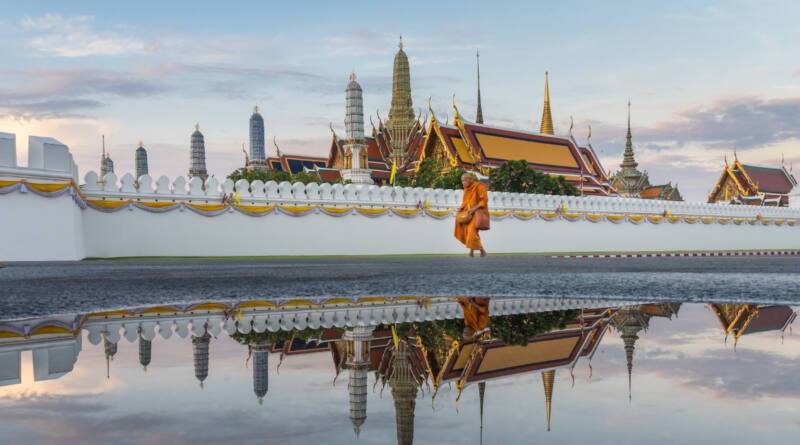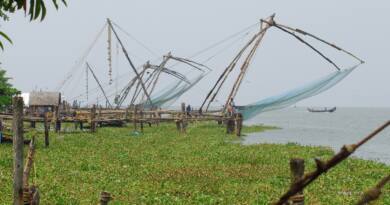Thailand Has Now Regained Its Momentum In The Tourism Industry.
WFY BUREAU ASIA:
Thailand continues to experience a decline in tourist arrivals compared to pre-COVID times.
The tourism sector is experiencing a period of growth, thanks to the implementation of AI, effective marketing strategies, and the popularity of Season 3 of ‘White Lotus‘.
Thailand’s pristine beaches, ancient temples, and lively nightlife are simply irresistible. In the last twenty years, these attractions have managed to attract tourists once again, despite the challenges of a devastating tsunami, deadly air pollution, violent street protests, and even temporary military coups. However, it is worth noting that the pandemic has not resulted in a repetition of history. Amidst the COVID pandemic, the nation heavily reliant on tourism, had to take the drastic measure of closing its borders to almost all travellers for over a year, causing a significant impact on its economy. After months of closure, the establishment cautiously reopened its doors in July 2021. However, the number of tourists has yet to reach its pre-pandemic levels. In 2023, the number of arrivals reached 28 million, which was approximately 30% lower than the pre-pandemic record of 39.8 million.
The hotel owners attribute the slow recovery to China, emphasising its significant impact on the industry.
In 2019, a staggering 11 million tourists from China visited Thailand, making it the country’s top source of visitors. In 2023, a total of 3.5 million Chinese tourists visited, with the majority attributing their decision to the challenging economic conditions in China. Various factors also deterred tourists in general, such as a shortage of flights, increased prices, deteriorating pollution levels, and negative publicity surrounding scams and crimes.
According to tourism analysts, the decrease in arrivals has not been catastrophic for the industry. According to experts, the COVID pandemic and its aftermath have compelled the sector to adapt and find new ways to improve efficiency. This has led to the introduction of innovative technologies, the exploration of diverse revenue streams, and the implementation of more strategic marketing campaigns. Tourism-related businesses are experiencing unprecedented success. Despite lower occupancy, larger hotels are reporting higher profitability. According to several business owners, the COVID pandemic has expedited changes that were already in the pipeline, leading to what can be seen as a natural evolution of the hotel market.
During the COVID-19 pandemic, numerous businesses suffered significant financial losses on a global scale. There was a time when they had a significant number of hotels that were closed. In certain instances, there were delays in meeting payroll and rent payments.
In Thailand, the first quarter of 2024 proved to be exceptionally strong. Businesses are already seeing significant figures. Hotels have been highlighting their wellness offerings, such as spas, along with their diverse selection of restaurants and bars. Local residents have been tempted with enticing offers to visit for a meal, while Thailand’s cuisine has been promoted to international tourists who have expressed a strong interest in food.
The occupancy rate is slightly lower than pre-COVID levels, but there has been a significant increase of 26% in revenue per room in the first quarter. This boost can be attributed, in part, to higher rates. In the previous year, the company experienced a remarkable 22% increase in revenue, accompanied by an impressive 27% surge in profits. In addition, several businesses experienced significant growth in revenue and profit, with increases of 24% and 215% respectively in the past year. Despite the increase in prices, travellers remain eager to embark on post-COVID adventures.
In addition, tourists are being enticed to invest in a variety of experiences beyond just flights and accommodations through targeted marketing efforts. Tourism in Thailand has evolved to cater to a diverse range of interests, with the Tourism Authority of Thailand and tour operators now promoting various niche tourism experiences. These include adventure tourism, ecotourism, spiritual tourism, and LGBTQ+ tourism, allowing prospective visitors to find experiences that align with their specific interests. In addition to other visa options, the government provides a three-month visa specifically for individuals studying Muay Thai, the traditional fighting style of the country.
Thailand is positioning itself as an attractive location for film and television productions, showcasing its stunning scenery to captivate audiences worldwide. Two resorts were used for the filming of Netflix’s Mother of the Bride, while a third resort in Chiang Mai is set to make an appearance in season 3 of HBO’s White Lotus.
Hotels have made cost-cutting decisions by opting not to reinstate positions that were eliminated during the COVID-19 pandemic. Repetitive tasks such as check-ins have been automated. Chatbots have proven to be highly effective in addressing a wide range of guest inquiries, while the existing staff has become adept at juggling multiple tasks simultaneously. Front-desk attendants have acquired the skill of quickly concocting a beverage.
There has been an unequal recovery following the COVID-19 pandemic. Small and medium-sized tour operators are facing challenges in investing in new technology and attracting talent due to a labour shortage. According to a local businessman, there are certain areas where the government could provide assistance. He suggests that funding worker training programmes or offering low-interest loans to smaller players would greatly benefit them, as they are in need of more skilled labour.
There is a noticeable increase in the demands and expectations of customers visiting Thailand. Today’s guests are seeking amenities that offer seamless connectivity and room features that are enabled by the Internet of Things. Hotels are now harnessing the power of big data and AI to create personalised experiences tailored to each customer’s unique preferences.
In recent years, the Thai government has stepped in to support its thriving tourism industry. The region’s first “travel sandbox” has been introduced on Phuket, enabling vaccinated and tested tourists to explore the island. Following the complete reopening, the government has decided to waive visa fees for tourists from China, India, and numerous other countries. Additionally, they have also made the requirements more lenient for other travellers. In addition, the government has increased its financial support for Thai Airways. The carrier, which is 48% state-owned, has successfully returned to profitability and is now preparing to exit a court-ordered restructuring. In the future, Thai authorities have ambitious plans to expand the capacity of Bangkok’s two international airports, aiming to accommodate a total of 200 million passengers by 2030. Additionally, they are considering the construction of new airports in popular tourist destinations such as Phuket and Chiang Mai, as well as opening up more provincial airports to international arrivals.
Industry experts predict that Thailand’s tourist arrivals in 2024 will exceed the figures recorded in 2019. However, leaders in the tourism sector are bracing themselves for any potential future disruptions.
According to a local source, the current times are characterised by unpredictability. The key takeaway is the importance of being prepared, flexible, and adaptable, while also maintaining a strong balance sheet.




